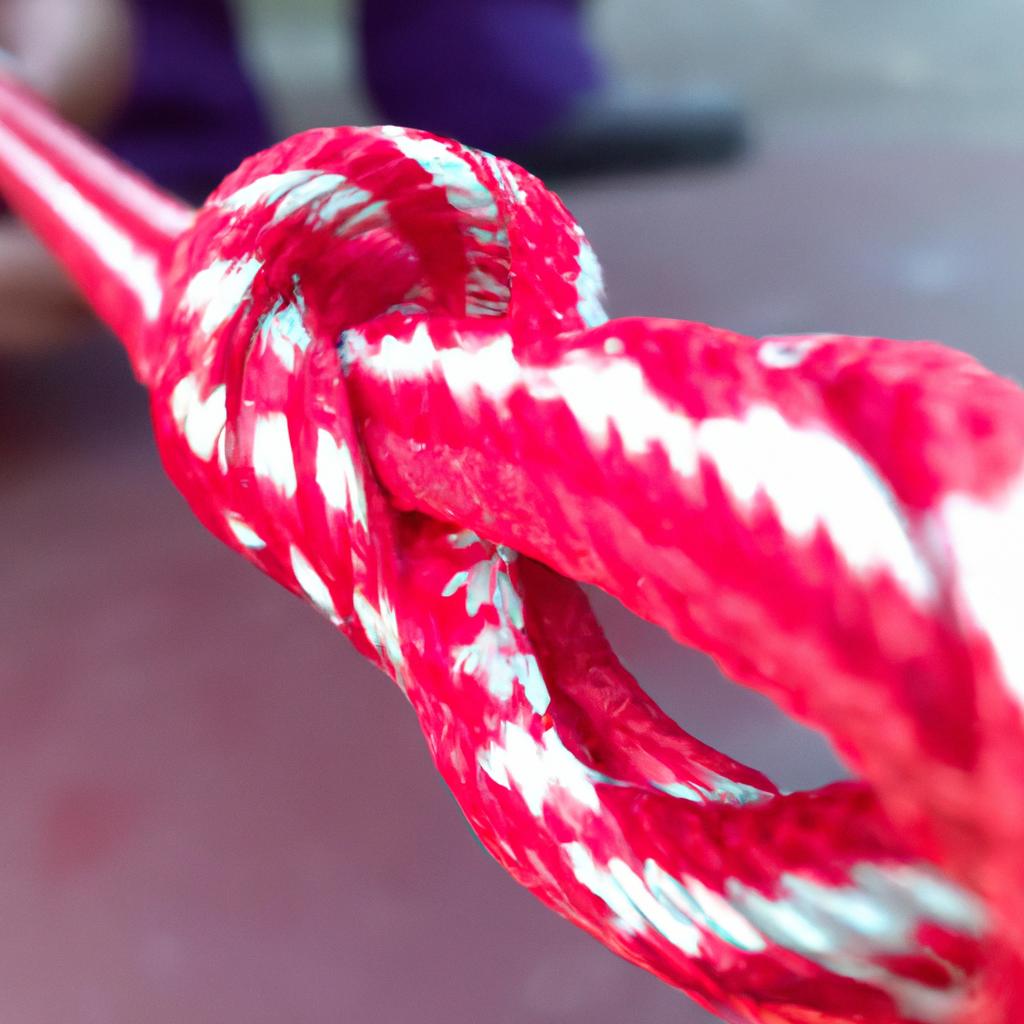Are you an outdoor enthusiast looking for the best rope to take with you on your next adventure?
In general, dry nylon rope does float. The nylon that rope is made from is a lightweight material with relatively low water absorption, which allows it to maintain buoyancy in water. However, the floating ability may vary depending on the rope’s construction, density, thickness, and any additional coatings or treatments applied.
With its strength and durability, nylon rope has plenty of uses; however, determining whether or not it floats depends on more than just its material type.
In this article, I’m going to dive into the details so that you can make an informed decision about which type of rope will work best for your excursions!
Properties Of Nylon
Nylon is a popular rope material due to its durability and cost-effectiveness. It also offers great stretchability, strength, and comes in a variety of colors so you can find the perfect one for your needs.
Nylon stands up to heat, wear, sun exposure, cold temperatures, moisture, abrasion and more – it’s tough stuff!

Additionally, this versatile synthetic fiber has some unique properties that make it an ideal choice for many outdoor activities.
For example, nylon ropes are lightweight but strong enough to provide the grip needed when climbing or rappelling.
They’re also flexible and pliable enough to be tied into knots easily. Plus they have excellent shock absorption qualities which makes them very safe to use even with high tensions applied during activities like sailing or bungee jumping.
Now let’s explore how these properties affect buoyancy…
Factors Affecting Buoyancy
Do the properties of a nylon rope allow it to float? To answer this, we need to consider several factors that affect its buoyancy.
First, water resistance plays an important role in whether or not a rope will stay afloat. The smoother and slimmer the surface of the rope is, the less absorption there will be between it and the surrounding water.
Nylon ropes tend to have a tight finish which gives them good water resistance, allowing them to remain on top of the surface with ease.
The density of a rope also affects how well it floats. Generally speaking, lighter materials such as air pockets within synthetic fibers can make up for some of the weight added by lengthier ropes so they don’t sink quickly.
Because nylon has low specific gravity compared to other types of ropes, it tends to float better than heavier varieties like steel cable even if they are similarly sized.
Taking into account these two aspects—water resistance and rope density—it’s safe to say that nylon ropes should indeed be able to float when given enough room for air pockets throughout their structure and used at appropriate lengths relative to their weight.
With that being said, let’s explore what testing might reveal about its floating capabilities…
Testing The Rope
Testing the rope is the next step in evaluating its usefulness. The first thing to consider is how well it can resist water, as this will determine whether or not it’s suitable for outdoor activities like camping and rafting.

After submerging a length of nylon rope in water, I found that it floats quite easily due to its low density. It also held up surprisingly well when compared with other materials such as polyester; however, there are certain weather conditions which may cause some deterioration over time.
Next, I looked at elasticity levels and strength comparisons between different types of ropes. This was especially important for activities where a high level of stretchable tension is needed such as climbing and rappelling. Nylon ropes, unlike tent sheet nylon, proved to be quite strong and had great elasticity properties even after being exposed to UV degradation from the sun’s rays.
All these factors combined help make nylon an ideal choice for many outdoor uses. Moving into my conclusions about nylon rope, it’s clear that it has a number of advantages that make it perfect for applications where you need something lightweight yet robust enough to withstand harsh environments.
Furthermore, its resistance to wear and tear ensures that you won’t have any problems using your gear again and again without having to worry about replacing them too often! With all these benefits taken into account, one can confidently say that this type of rope is an excellent choice for anyone looking for reliable performance outdoors.
Conclusions
After testing the rope, we now know for sure that nylon does not float! What a disappointment. But, before coming to any conclusions about this man-made material, let’s take a look at some of its other characteristics and consider durability considerations, environmental impacts, storage issues, manufacturing techniques, and knot tying techniques.
First off: knots – can you make them with ease? Absolutely! Nylon is an extremely strong material when it comes to holding its shape after making a knot or loop. It also won’t shrink from water like most natural fibers do. All in all – if learning how to tie knots is your goal – then nylon has got you covered!
When it comes to storage, there are few materials that beat out nylon due to its lightweight construction and superior resistance to mildew growth and moisture damage. That being said – store in cool dry areas away from direct sunlight as UV rays will cause fading over time.
In terms of sustainability, nylon production usually involves high energy consumption as well as copious amounts of chemical processes which aren’t exactly eco-friendly. For those looking for more green options – hemp or jute might be better choices although they come with their own set of pros and cons too.
Finally – while nylon may have some drawbacks compared to other ropes on the market – one thing’s for certain – it definitely lasts longer than most synthetic materials due to its increased strength and durability even under harsh conditions such as extreme temperatures or exposure to saltwater/acidic environments. When properly cared for – this tough stuff could last years without needing replacement!
Frequently Asked Questions
What Are The Advantages Of Using Nylon Rope?
Choosing nylon rope is a great option for any outdoor enthusiast looking to get the most out of their purchase. It’s lightweight, highly durable and cost effective compared to other materials.
Nylon can also stretch up to 20%, making it incredibly versatile for activities such as camping, rappelling, sailing or just about anything else you can think of!
Not only that, but its UV protection ensures your investment won’t be affected by harmful sun rays while its abrasion resistance helps keep it from fraying over time.
In short, if you’re looking for an affordable solution without sacrificing quality – nylon rope should certainly be at the top of your list!
How Strong Is Nylon Rope?
Ah, the age-old question: How strong is nylon rope?
Well folks, let me tell you that there’s no need to worry about whether or not your trusty ol’ nylon rope will be up for the task. With its chemical properties, knot tying abilities and impressive breaking strength, it’ll never let you down!
Not to mention the fact that its UV resistance and flexibility make it ideal for any outdoor adventure. You can rest easy knowing your nylon rope has got your back – free yourself from worries of ever having to float with this reliable buddy by your side!
Is Nylon Rope Waterproof?
As an outdoor expert, I’ll tell you that nylon rope is incredibly durable. It stands up to knot tying, stretch capacity testing and heat resistance with ease.
It’s also highly resistant to chemicals which makes it a great choice for anyone looking for reliable waterproof protection in their outdoor adventures.
With its durability testings, knot tying capabilities, stretch capacity, heat resistance, and chemical resistance – you can trust that your nylon rope will keep you safe on any adventure!
How Long Does Nylon Rope Last?
As an outdoor expert, I’m often asked about the longevity of nylon rope. And while it’s hard to give a definitive answer due to factors such as its deterioration rate, knot tying techniques, and UV protection, with proper care and attention, you can usually achieve long-term use from your nylon rope.
It helps if you choose a rope that has abrasion resistance for additional durability in extreme conditions, plus chemical compatibility is also important when choosing your rope type.
Ultimately, by taking all these factors into account, you’ll be able to maximize the lifespan of your nylon rope.
How Much Does Nylon Rope Cost?
When buying nylon rope, there are many factors to consider.
It’s important to think about the lifespan comparison of different types, as well as stretching properties and breaking strength.
Knot tying is also an important factor, so it pays to do your research before you buy!
Nylon rope can be a great addition to any outdoor activity, offering freedom while ensuring safety and security along the way – just make sure you find the right one for the job.
Buying tips such as researching various brands and comparing prices will help ensure that you get the best value for your money when purchasing nylon rope.
Conclusion
As an outdoor expert, I can tell you that nylon rope is a great choice for many applications. It’s strong, waterproof and durable, making it perfect for camping trips or boat outings where you need to tie down something securely. Plus, its cost-effectiveness makes it an attractive option compared to other types of ropes.
But the question remains: Does nylon rope float?
Well, if suspense is what you’re after – the answer is yes! Nylon rope has buoyancy and will remain afloat when immersed in water.
This means that not only can you use it as part of your securing system while out on the lake but also that accidental drop-offs don’t necessarily mean goodbye forever; should the worst happen, there’s still a chance of recovery.
In conclusion, nylon rope offers numerous advantages over other types of rope including strength, durability and cost-efficiency – plus, it floats too!
So no matter how active your outdoors lifestyle might be, nylon rope could be exactly what you need when looking for something reliable to secure your valuable items with.




